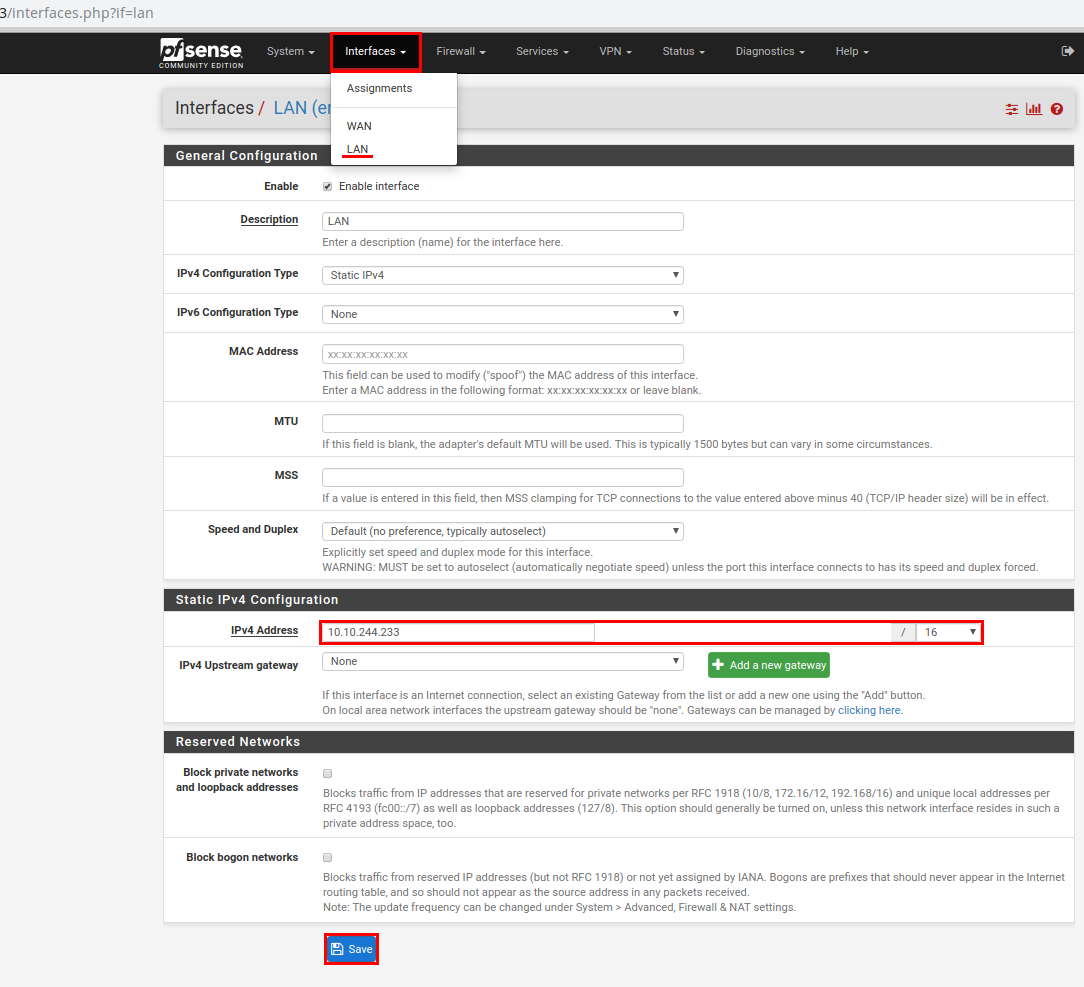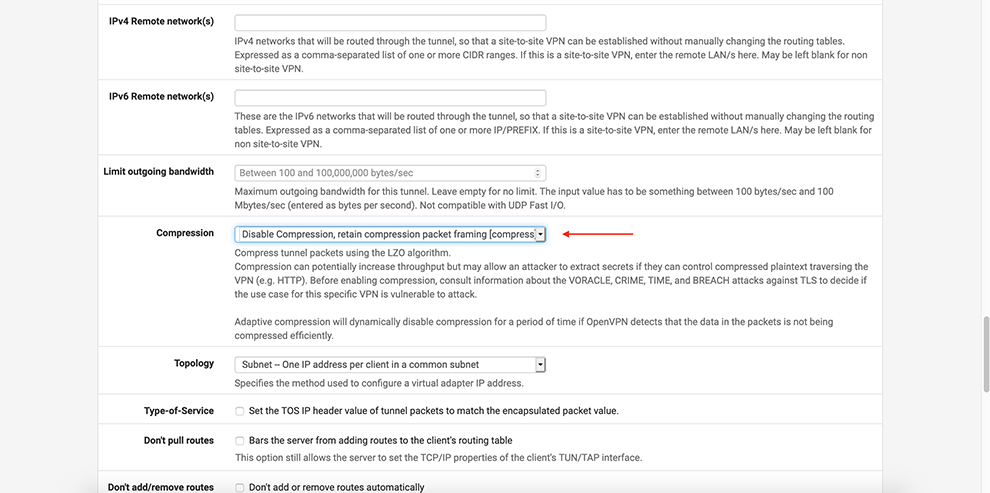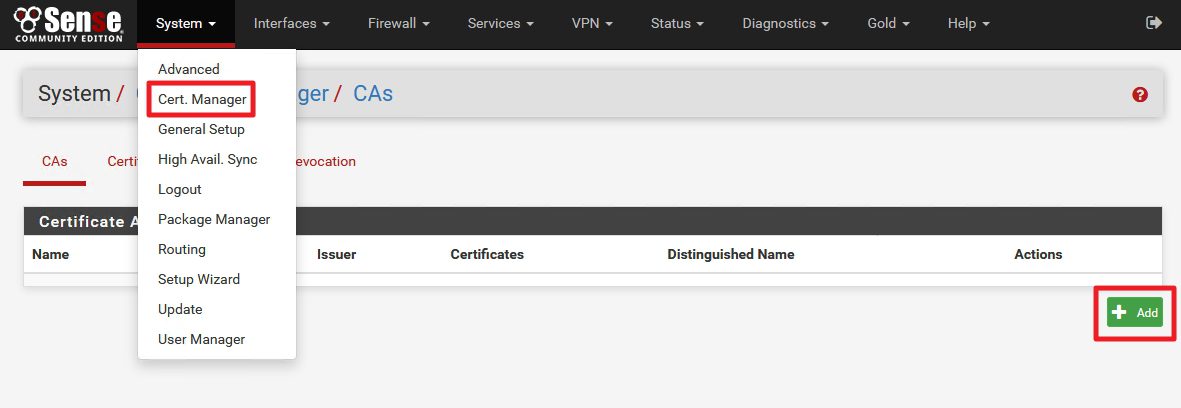
Open new browser tab with new WebGUI instance accessed by IP 192.168.112.1. Remember WebGUI will have a new IP after reboot. My instance get IP by DHCP.Ĭonfigure LAN network. And read Netgear support information if you need.Ĭonfigure WAN interface. Open browser and login in pfSense web configurator with default credentials ( admin: pfsense) Next see the results and continue the configuring in browser by 192.168.1.1. The WAN interface should be the virtual interface connected to External port group. Open VM setting in ESXi to be right in this choose. In many of screens I’ve just clicked Next and haven’t change anything.Īfter reboot system will offer to setup network interfaces And we can click to button Power on for start installation.
#Openvpn pfsense iso
Select an installation ISO image uploaded earlier.Īfter that the VM has to be created. Click Create new VM.Īdd more space of VM disk. After that you will see the pfsense image in ESXi. First of all add an installation ISO image. Now we can prepare to make pfSense on ESXi. It needs to get access to ESXi WebGUI from our local network ( 192.168.112.1/24)Īfter that we will have two management interfaces. The created port group by default can be removed. VMs connected to this port group has access to Internet only through a firewall. Retry it for creation Internal port group. Name it External as straight external network.
#Openvpn pfsense software
In vmnic1 connected my laptop.Īdd new port group that will used to connect our software firewall (pfSense). Set an obvious name and select second network interface. It will use for access for created virtual machines. I just open a browser and insert 10.16.65.12 in address line. I get access to ESXi through WebGUI by local IP that ESXI have got from DHCP Server. So I have an installed ESXi hypervisor on my bare metal server.

In this article I have next hardware and installed software on them:

#Openvpn pfsense free
PfSense is a free and open source firewall and router that also features unified threat management, load balancing, multi WAN, and more.
#Openvpn pfsense license
Type-1 hypervisors are also referred to as bare-metal hypervisors because they run directly on hardware.Īlso VMware vSphere Hypervisor is a free product and require a free license for the usage. The best way to build VPN tunnel with pfSenseĮSXi is a type-1 hypervisor, meaning it runs directly on system hardware without the need for an operating system (OS). That should do it, if you have everything setup properly that should start working.ESXi.


If you already have the IPSec VPN and the OpenVPN setup and working, you just need to add a few things.Īlso if you have the firewall rules for those 2 VPNs to allow all traffic to all places then you don’t need more firewall rules. Normally you will only have access to the local network that the OpenVPN connects to, but with a few simple steps you can allow access to all connected networks. If you happen to have your offices connected with IPsec VPN, and also have a OpenVPN setup into your main pfSense router, then you can also allow your road warriors and COVID quarantined workers access to all the resources from each location.


 0 kommentar(er)
0 kommentar(er)
